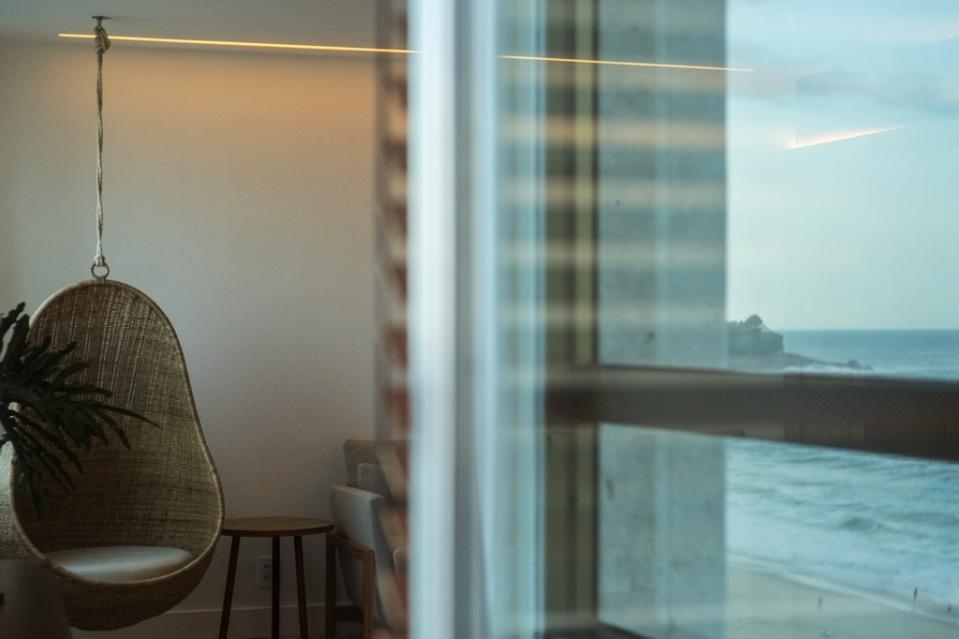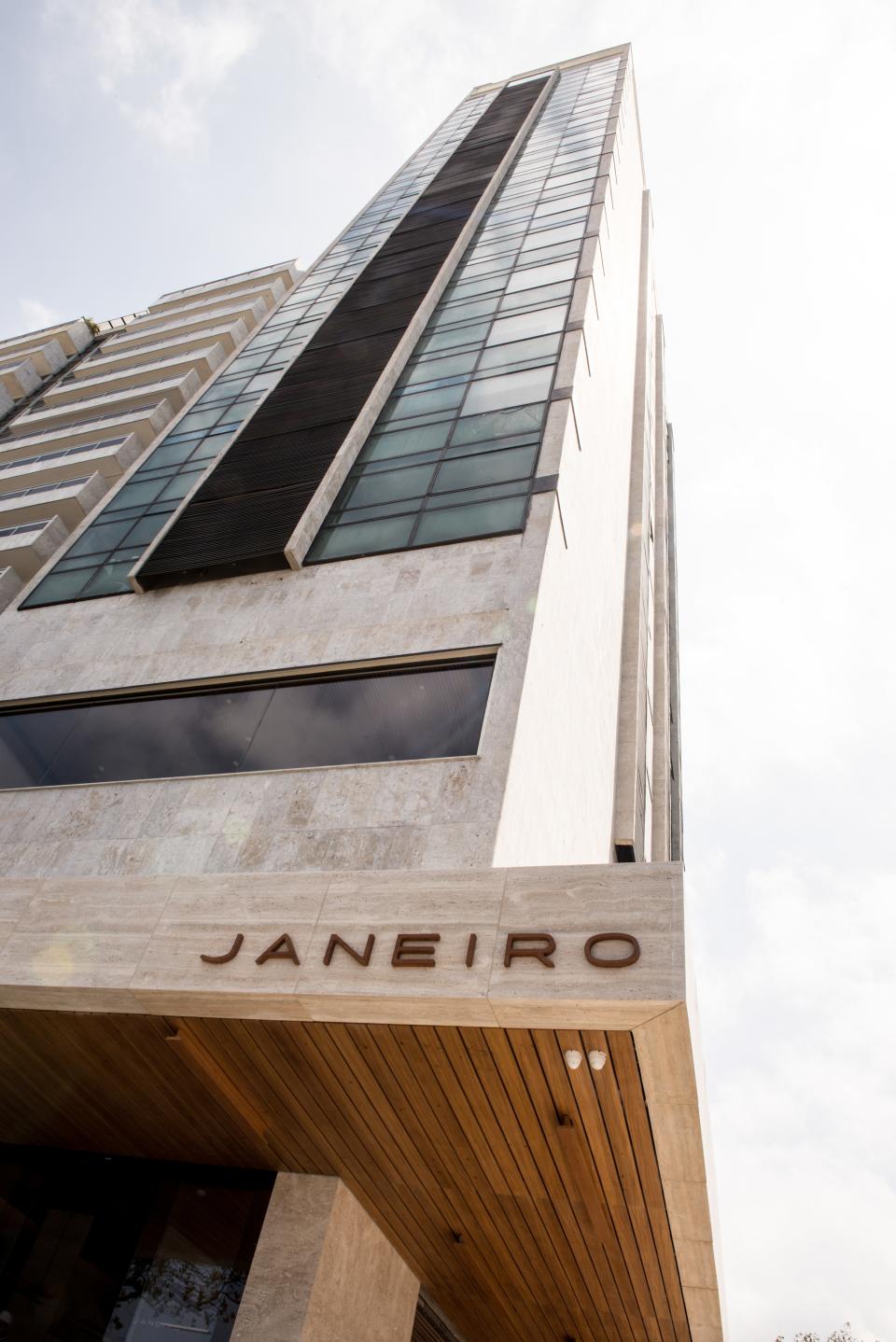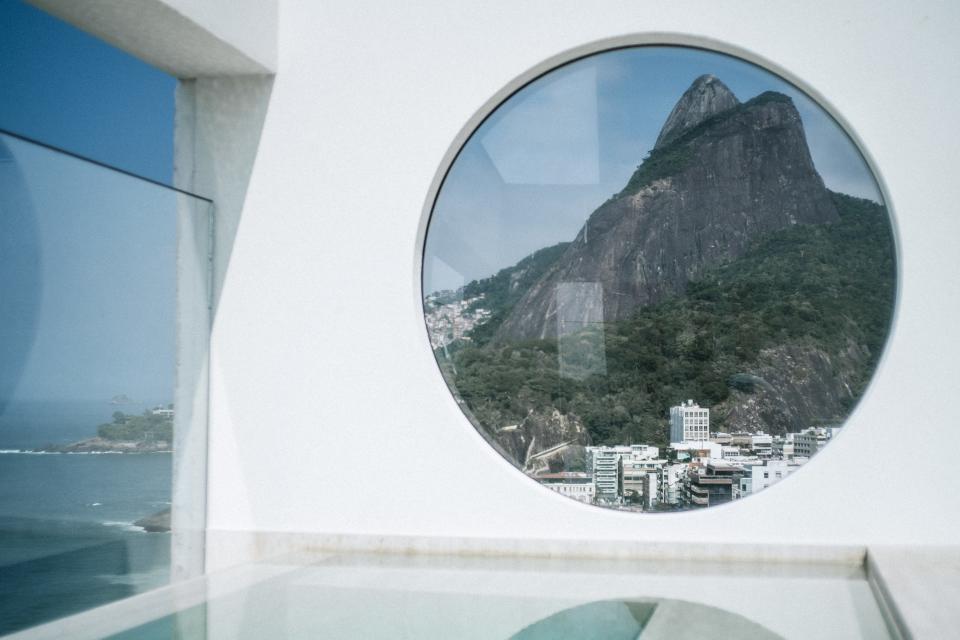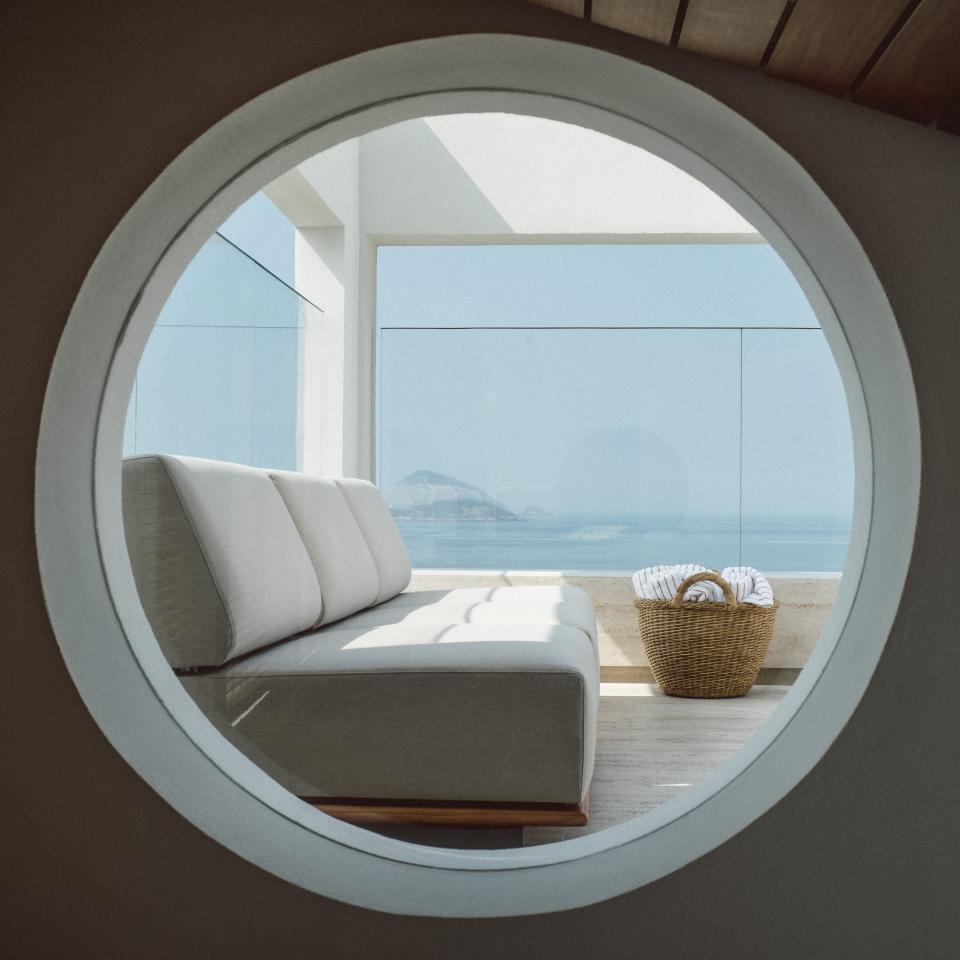A New Eco-Friendly Boutique Hotel in Rio de Janeiro Offers Sweeping Beach Views (and Some “Healthy Hedonism”)
Ask Oskar Metsavaht—artist, designer, sustainability entrepreneur—for a few of his favorite places to spend the night, and the founder and style director of Brazilian fashion brand Osklen is as likely to tout an old Indonesian fishing boat he once occupied during a surfing trip as he is the Ritz in Paris. (Also on the list: the Chateau Marmont, a Himalayan encampment, Rio’s Copacabana Palace, and “the Asháninka tribe's sleeping nets.”) So is it any surprise that his newest endeavor, a boutique hotel smack on the beach in Rio, is as chic as it is (refreshingly) ecologically sound? “I believe most of us at one time in our lives probably thought about what it would be like to do a hotel—the different small details that surprise you when you’re in a place and you feel elegant, or cozy, or relaxed, or cool, and you want to share your experience with others,” Metsavaht says. Lucky for those of us who dream less about investing in the hospitality industry than one day enjoying the fruits of its labors in various exotic locations, it’s just gotten that much easier to step into Metsavaht's world: this month he and Brazilian hotelier Carlos Werneck open Janeiro, a super-stylish, eco-minded boutique hotel in Rio's Leblon neighborhood, a little west of Ipanema. It’s “for sure the best location in the city, by the sea,” he says, in “the most residential and sophisticated neighborhood”; the building was formerly the Marina All Suites hotel (locally known as Marininha)—all 53 rooms have views of the white cliffs of the Cagarras Islands, though many have showers that face the view, to give the occupant the feeling of being in an oceanfront bungalow rather than a high-rise.

“I always did the interior design and worked with my architects at Osklen for our stores and runway shows, and of course for my houses and apartments. I love it— it’s a pleasure to do it,” Metsavaht says, and Janeiro carries his eye for graphic minimalism, earth tones, and what the artist and sustainability entrepreneur calls “textures from the beach: sand, water, ráfia, palm trees and some details in vibrant colors that probably represent for me the vibe of our people.” But Janeiro is not just about style, Metsavaht says, “it’s also my love and respect for Brazilian and carioca culture” (the latter meaning the blend of people and traditions both native and specific to Rio). That appreciation is reflected in his investment in local art (through the paintings, photographs—many his own—and music on site), as well as in the national emphasis put on being what is, essentially, an excellent host. Come to Janeiro and you’re not a “customer,” a tourist dipping a toe in the scene: you are a treasured guest, one to be guided to the best restaurants and shops, galleries, museums, and artist’s studios. In this, as in his design touches, “Metsavaht has the 'mood' of Rio," Werneck told Brazil’s Estadão last November.¨

The hotel hews closely to the sustainable practices Metsavaht preaches—both through Osklen, which has long been a purveyor of a ecologically friendly luxury, using organic cotton, recycled PET, and leather made from piraruçu fish skin, and through his environmental foundation Instituto-E, which has developed reforestation in various local beaches, and a recent awareness initiative, called ASAP (for “As Sustainable As Possible” and “As Soon As Possible”). As a result, Janeiro is “exactly as sustainable as possible,” says Metsavaht, with the caveat that his version of the hotel was limited by the existing structure, which was too narrow to host the amount of solar panels required to entirely power the building. (They do use energy-efficient air conditioning and other equipment, as well as rainwater, and sustainably and locally sourced furnishings and food.) The hotel also supports “a children’s foundation that develops great educational projects in the city and another that revitalizes the beach environment in our neighborhoods,” says Metsavaht.

Plus, this all solves a very real problem for Metsavaht, who, with all of his various projects, including his art studio, OM.art, and his increasing footprint in New York, now has a place to put his frequent out-of-town visitors. And not just any place: a place that brings "what I think is important while you’re in a big cosmopolitan city like Rio, but at the same time by the beach—to be both close to nature and our healthy hedonist culture," says Metsavaht. "You could say it’s a carioca way of living.”
Read More Living Stories:
Hilary Swank Wears Elie Saab Couture and Dior at Her Wedding in the Redwoods—Read More
Model Tina Kunakey and Actor Vincent Cassel Are Married in France—Read More


